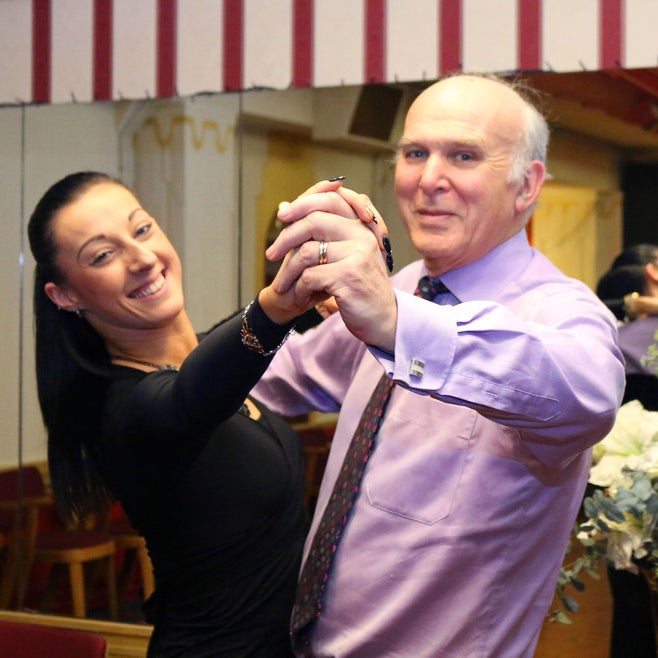
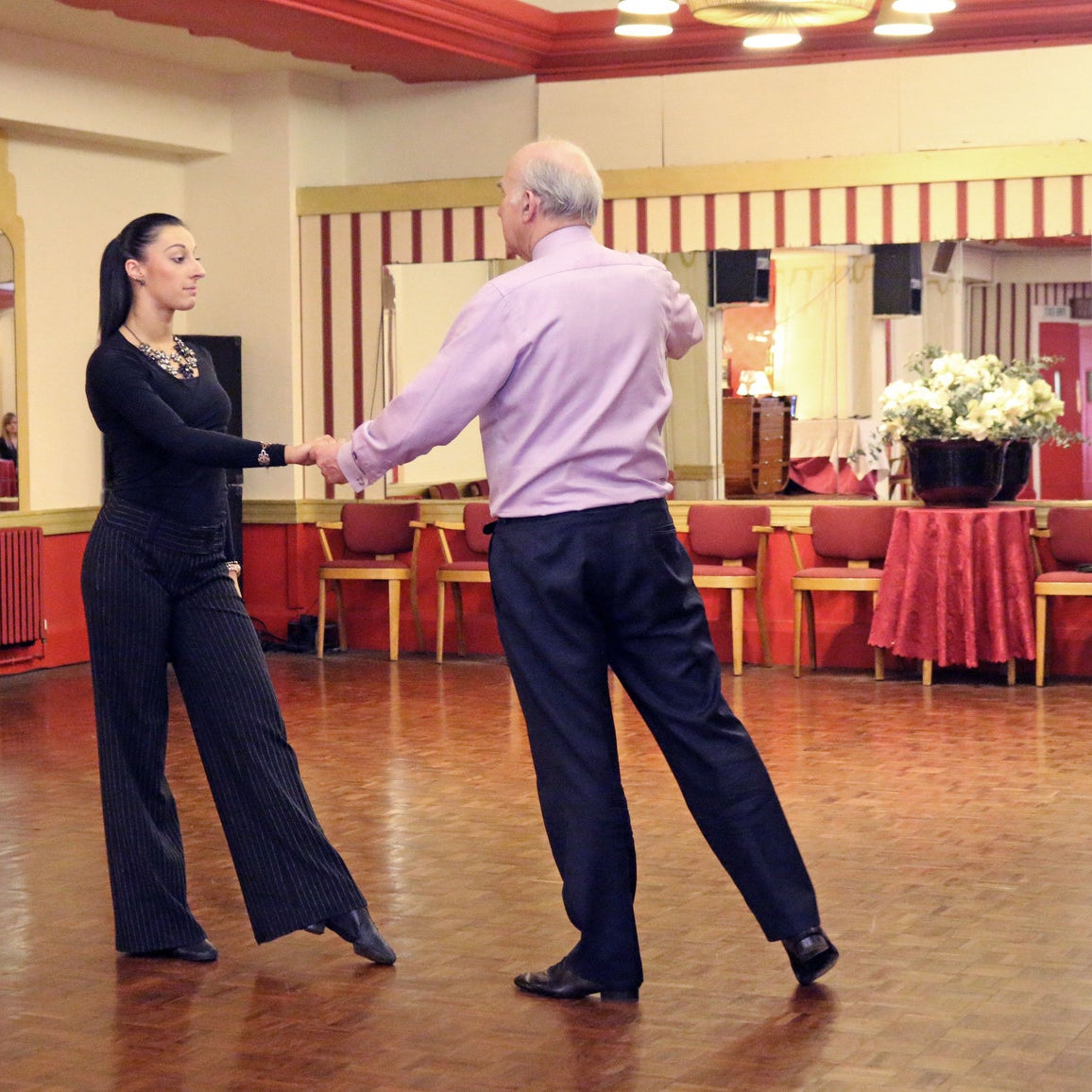
“A little bit more to the left!” It’s not something Vince Cable is used to hearing in coalition. But then the order is coming from his dance teacher, as the Liberal Democrat business secretary whirls his way through a waltz.
Almost every Friday afternoon, Cable heads to Kingston Dance Studio in Surrey for a private class to which BuzzFeed News is the first media organization to be invited. Even before the lesson starts, he’s changed from solid work shoes into a bendy, leather-heeled pair and is out on the dance floor, practising steps, arms aloft and completely oblivious to anyone watching. It's a strange sight – just the day before, he was sitting grim-faced in the Commons listening to his colleague Danny Alexander deliver the Lib Dem alternative to George Osborne's Budget.
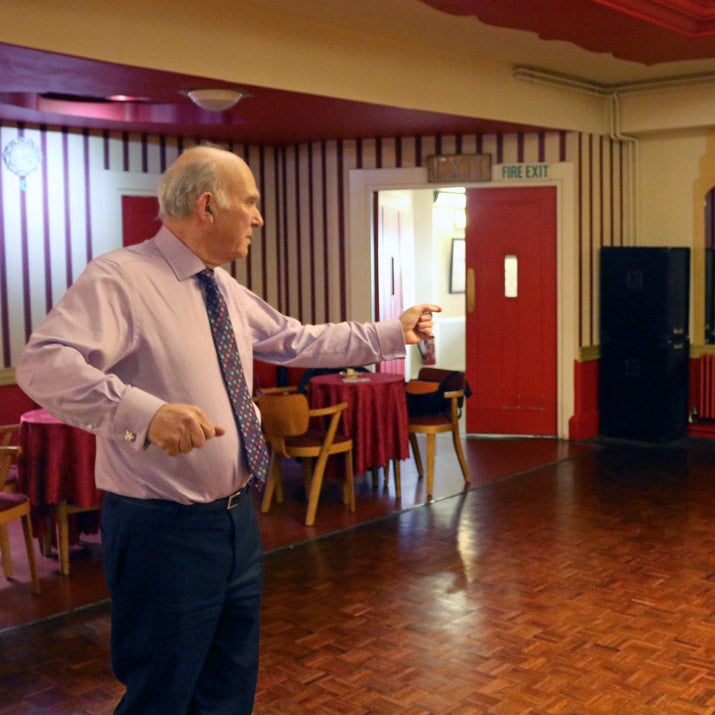
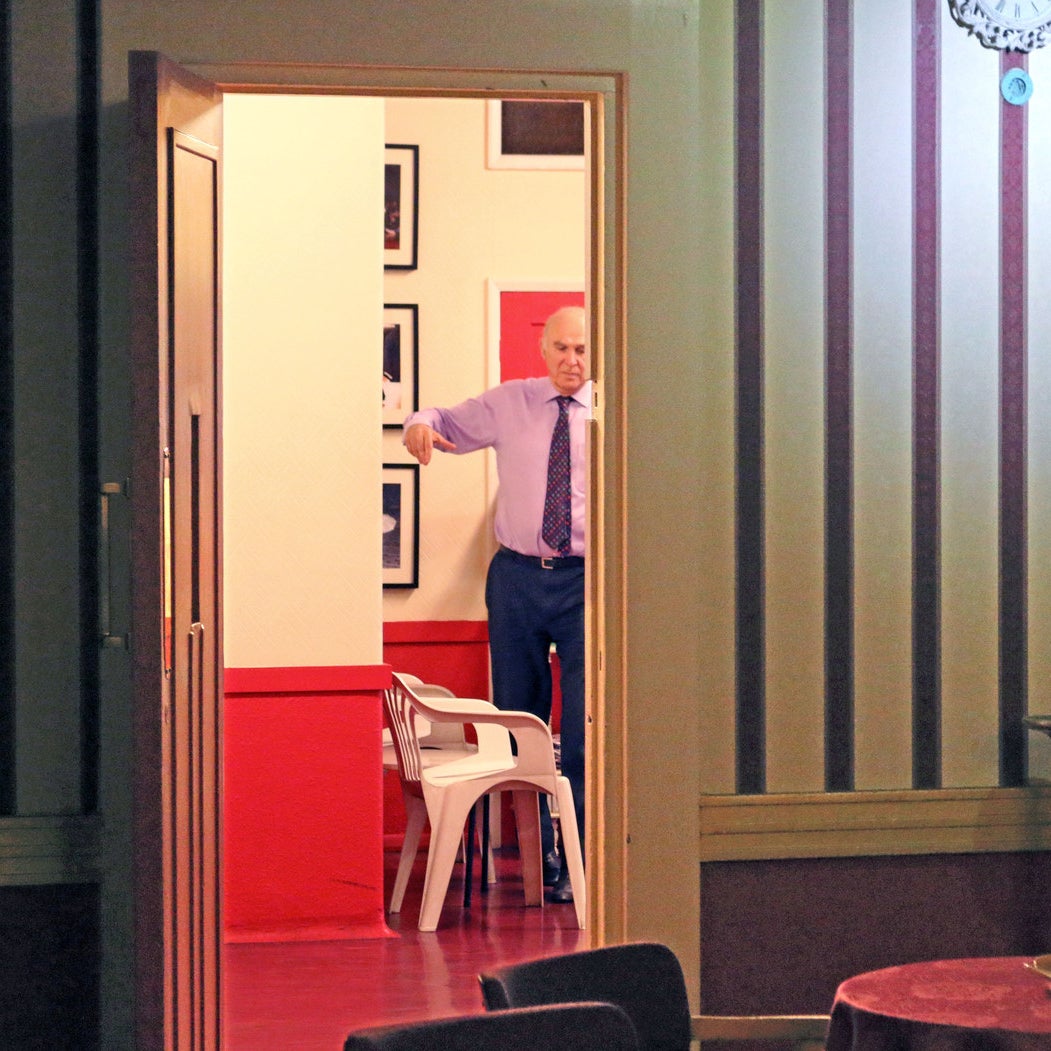
Instructor Nick Kelly watches from the stage as the minister determinedly goes through his repertoire of dances. Cable has been dancing with partner Cheyenne Russell for almost two years but today she’s strained her neck and warns him she’ll have to be careful. She knows he likes to push things to the limits.
Cable has been dancing for decades and has now completed all the exams possible for an amateur dancer. He’s not sure what exact level he’s reached, though, and turns to his wife Rachel, who has joined us for the class, when asked. “Oh, I don’t know – something like international superstar,” she jokes. Russell informs us that Cable has actually reached “international supreme” level. “Vince has learned every step you can do," she says. "He’s gone all the way.”
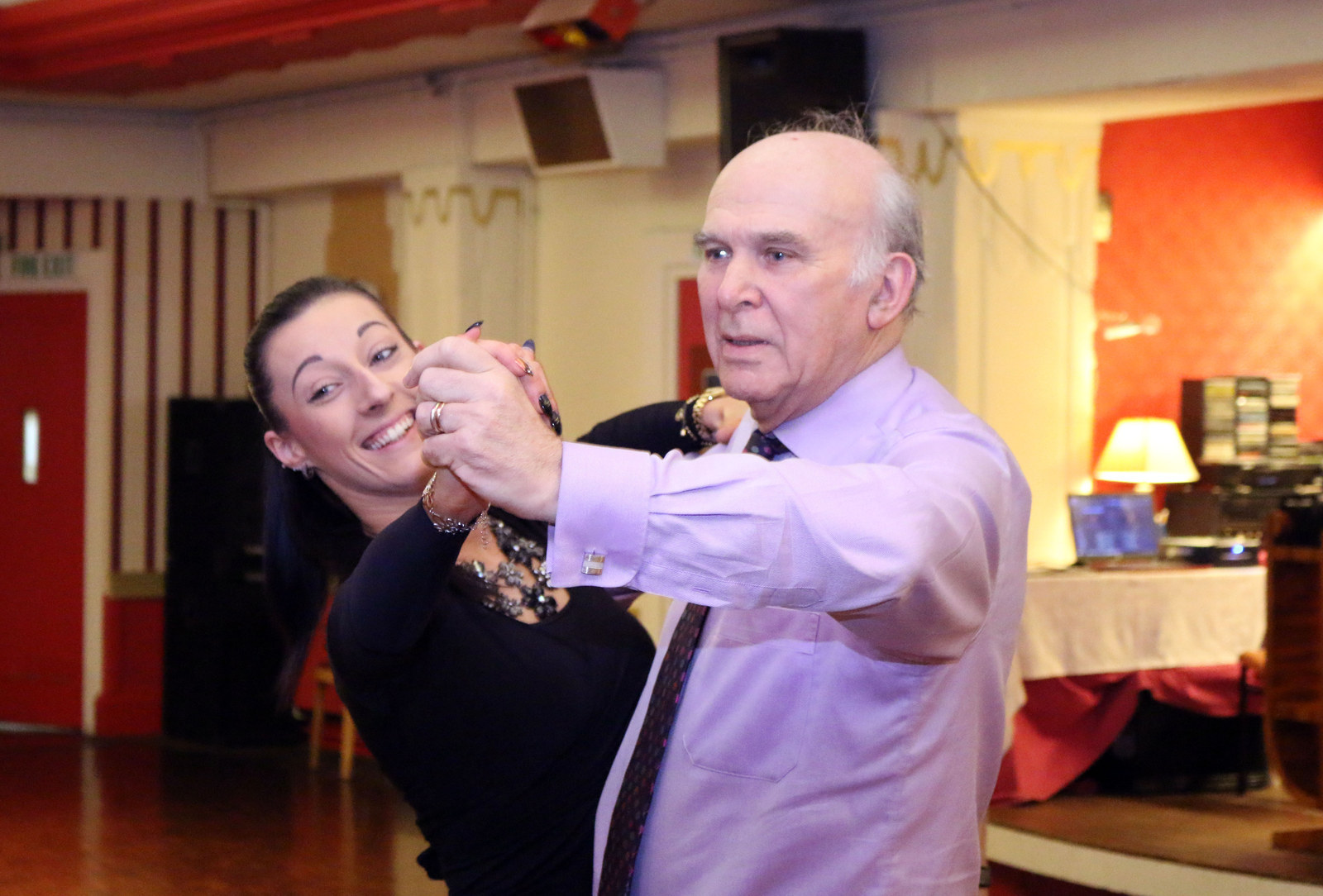
The pair glide through the waltz, foxtrot, quickstep, and tango before moving on to the rhumba and samba. Cable is clearly competent – he knows the steps off by heart – but he’s cautious and the frustration is visible on his face when he misses a beat. “That was super,” Kelly says, switching off the music and jumping down off the stage. "Super good use of your feet. Just your left arm's creeping forward, watch your posture. The movement was fantastic. You’re using your feet really well.” Cable stands with his hands on his hips as Kelly demonstrates the correct move, nodding silently as he takes on instruction. He wants to get it right.
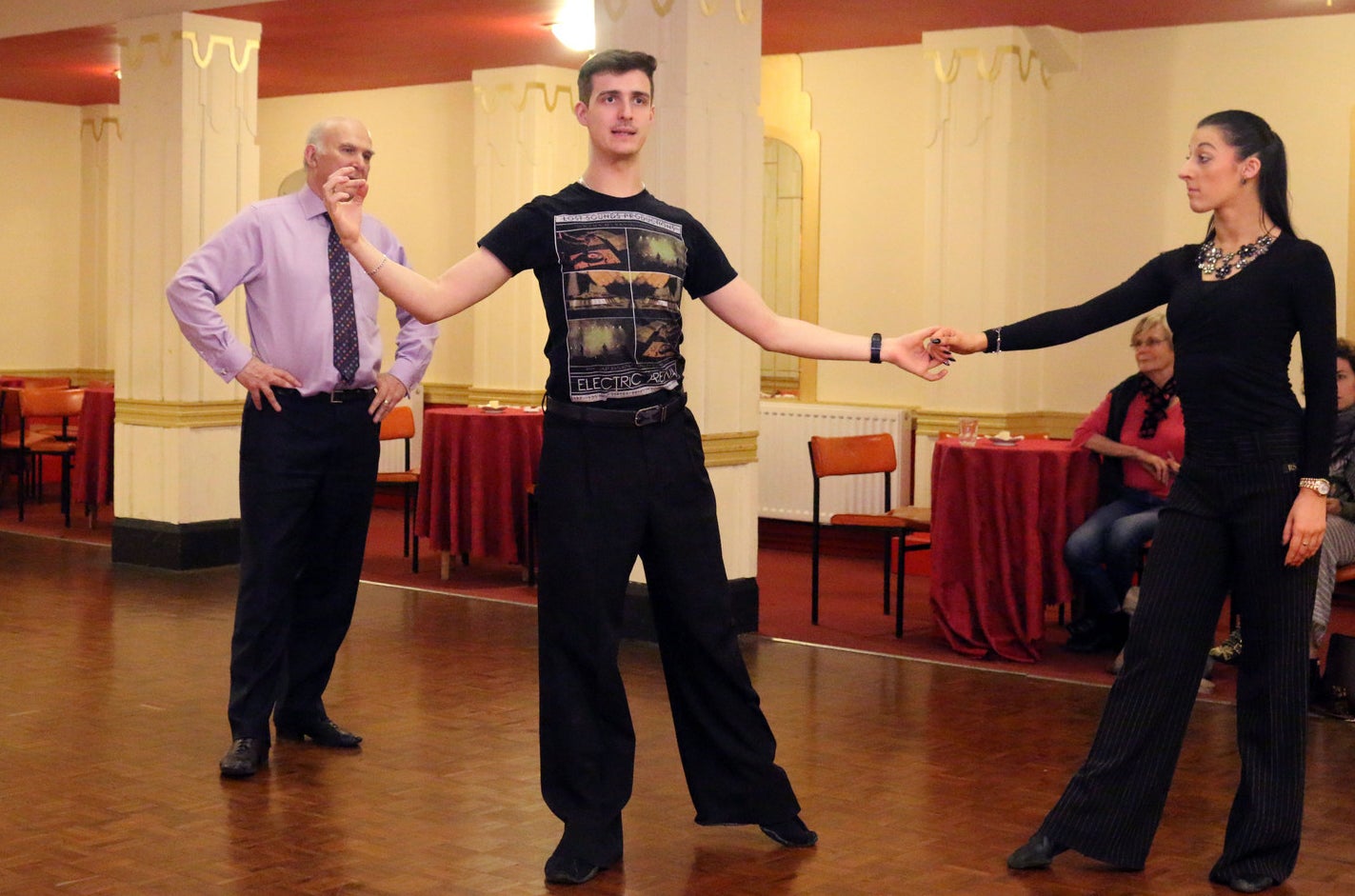
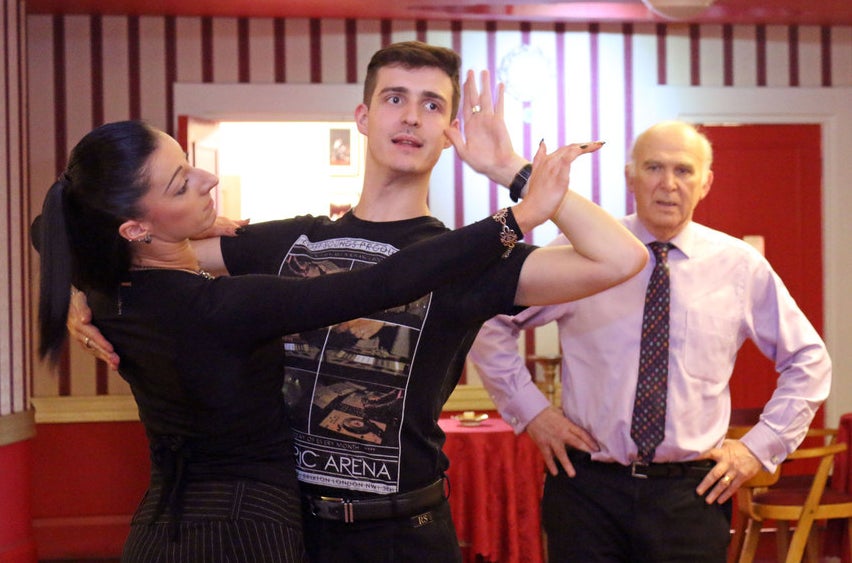
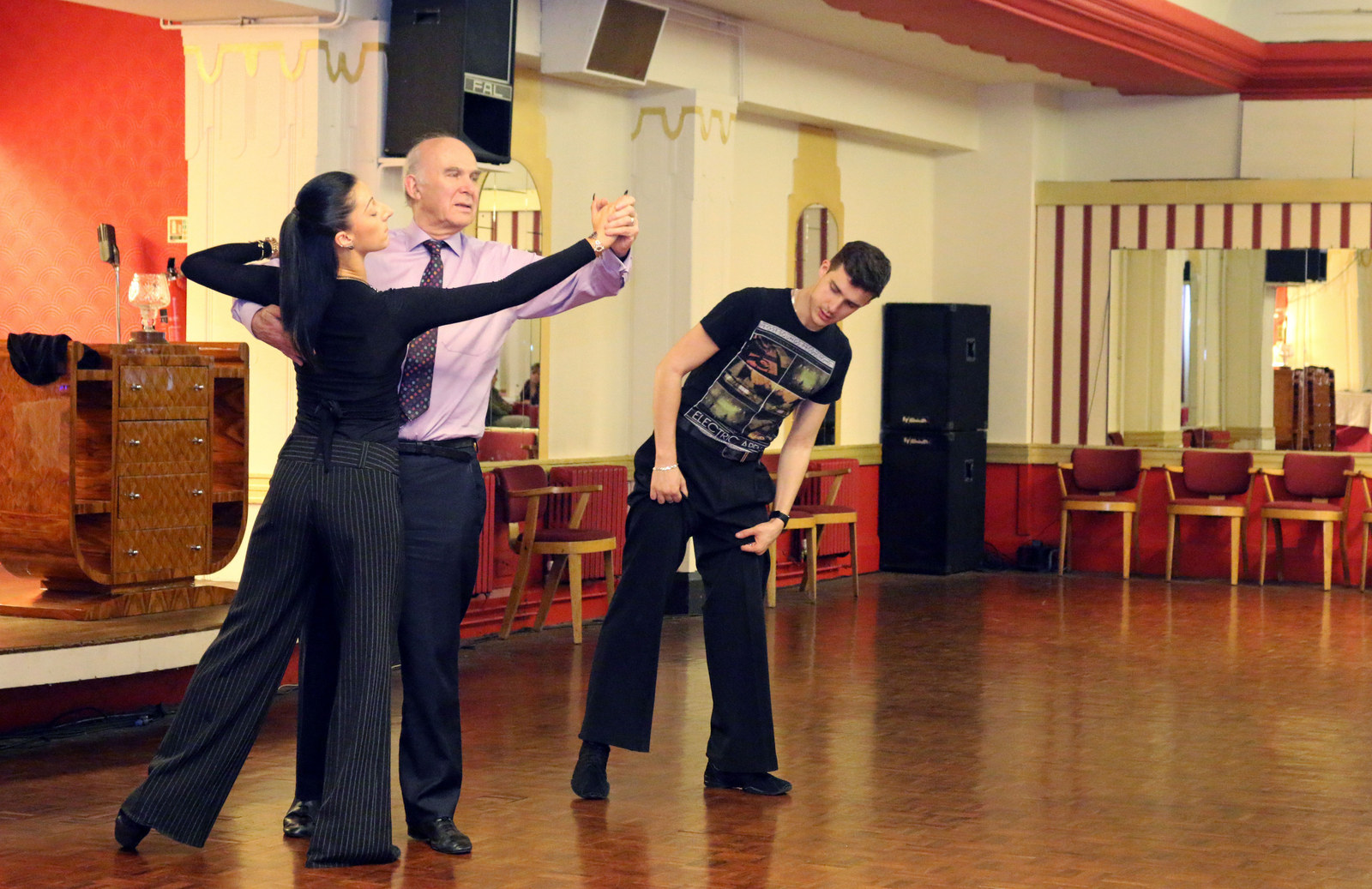
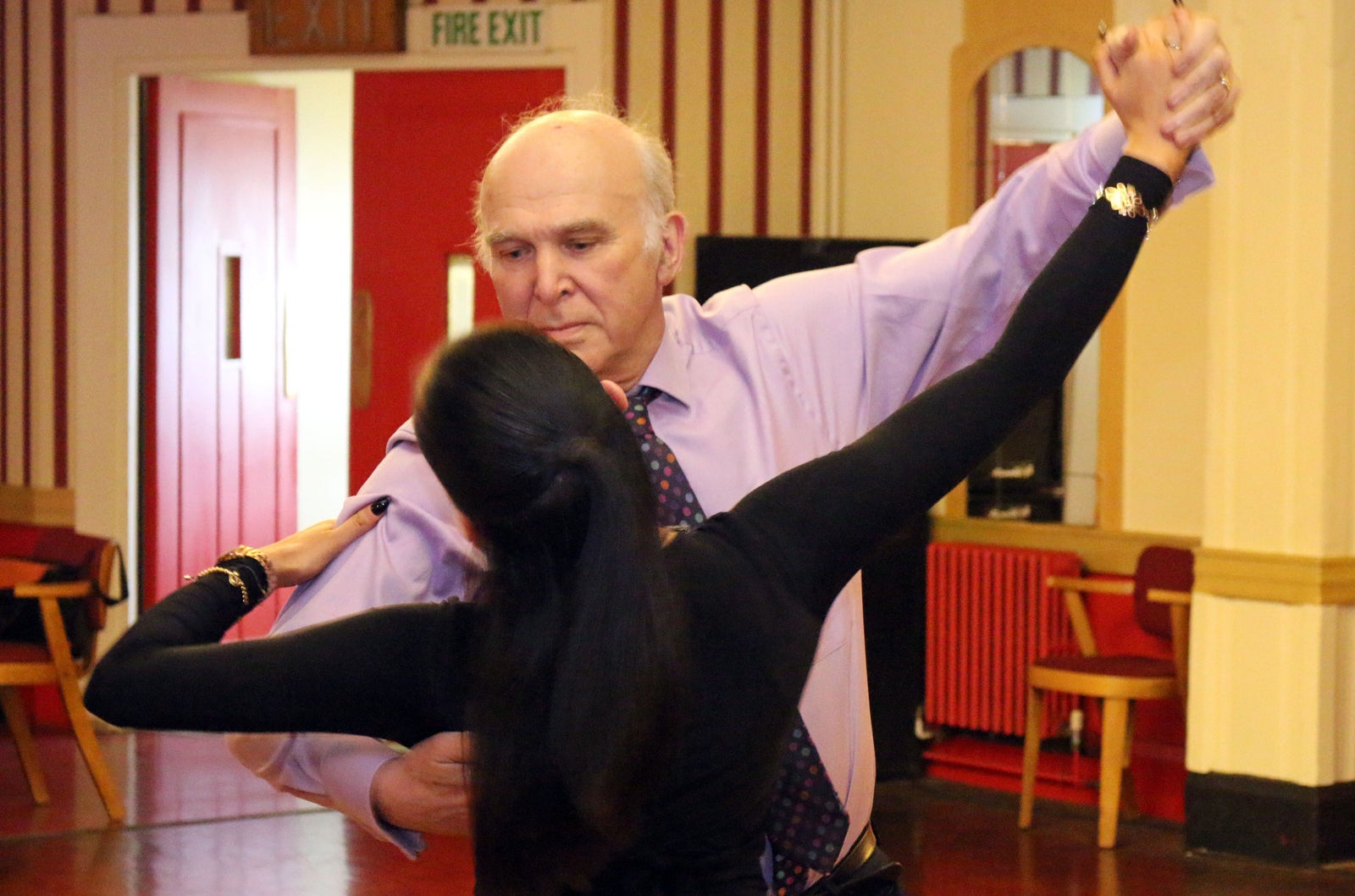

Dancing, he explains, is his refuge from politics. “I enjoy doing it,” he says, exhausted after his hour-long class. "When you do something reasonably well, you get some pleasure out of it. It’s very good for fitness – it may not look tiring but it is extremely tiring. And it keeps you mentally fit because you have to concentrate on that and nothing else and not some political worries – you can totally switch off, which is a good thing."
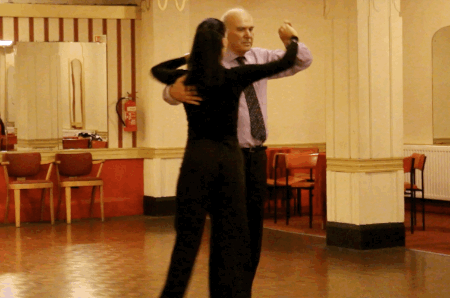
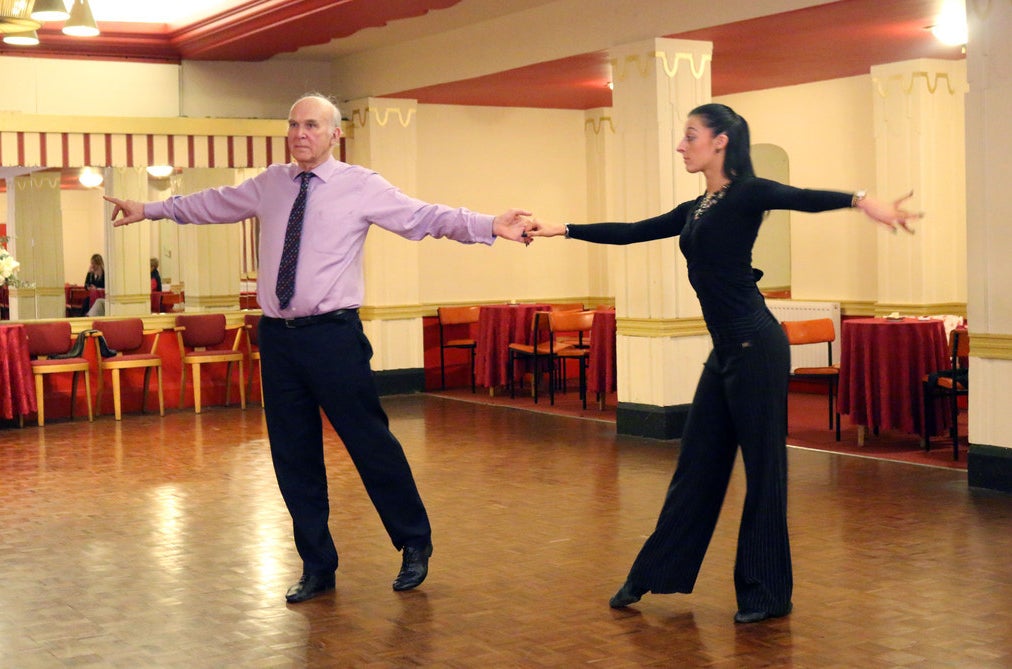
Asked whether this is the toughest election he's faced in his Twickenham seat since first winning it in 1997, he says: “It’s the toughest since then, yes. This time the Tories have targeted it. I’m not sure what their motives are. I don’t think they can win but if they would, obviously it would be big for them. I think they’re trying to make an impact, hoping to reduce the majority."
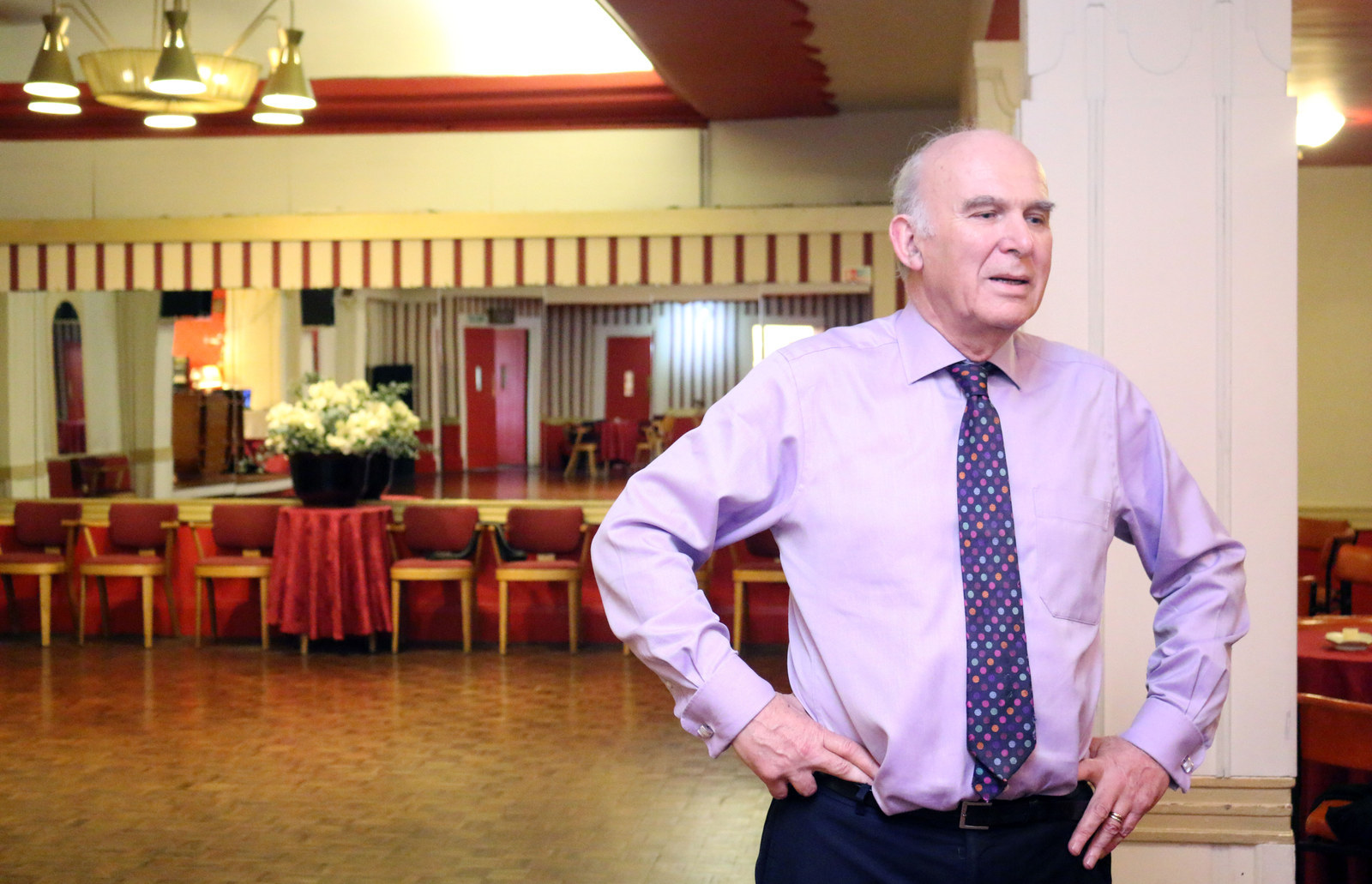
But the Tories haven't resorted to negative campaigning. “I do tend to have a good rating locally – maybe they think it’s counter-productive,” Cable says. “So I hope it stays that way. I always go out canvassing with a slight trepidation – you never know quite what you’re going to get – but I always come back feeling better than when I went out. I get almost 100% recognition, even under my hat, which is a good start. People are overwhelmingly very nice, actually even if they’re against me politically. They’re always pleased to see you because they’ve seen you on the telly."
And not just on the news. Cable’s appearance on the Strictly Come Dancing Christmas Special of 2010 – where his foxtrot with Erin Boag earned him a standing ovation – brought him a whole new level of recognition. People answering the door still mention the show, he says. "It’s usually the kids that remember.” He reveals that he’s still in touch with Boag: “When she does big shows, she invites us along and we go backstage."
Our interview is suddenly interrupted by a student brandishing a smartphone. We’re in a coffee shop at Kingston rail station, just opposite the dance studio, where Cable is happily munching on a millionaire’s shortbread after his workout. “Excuse me, Mr Cable?” The minister stands and talks to him about his university project for a couple of minutes before the student asks a one-word question: “Selfie?” The pair smile into the camera. Does this happen a lot? Both Cable’s wife and his special adviser reply: “All the time.”
Cable will turn 72 just two days after the general election. After 18 years in parliament and five years in the cabinet, did he consider standing down as an MP? “I felt at quite an early stage that having made this commitment to being in the government, having a major job in government, I should see it through – including defending my own seat on the back of it rather than just disappear,” he says. "That was actually psychologically quite important.” But he insists that he weighs up every election carefully. “Actually the most difficult was in 2001 because my wife was terminally ill and trying to care for her and being an MP at the same time was very, very difficult."
Despite his mature years, he seems keen to continue in the cabinet if the Lib Dems stay in government. “I'm not ruling it out,” he says. "I’m not going around handing out a begging bowl or anything but I’m willing to play whatever role comes up.”
Would he ever stand as party leader? “We’ve got one at the moment so the working assumption we’re making is that he’s going to continue."
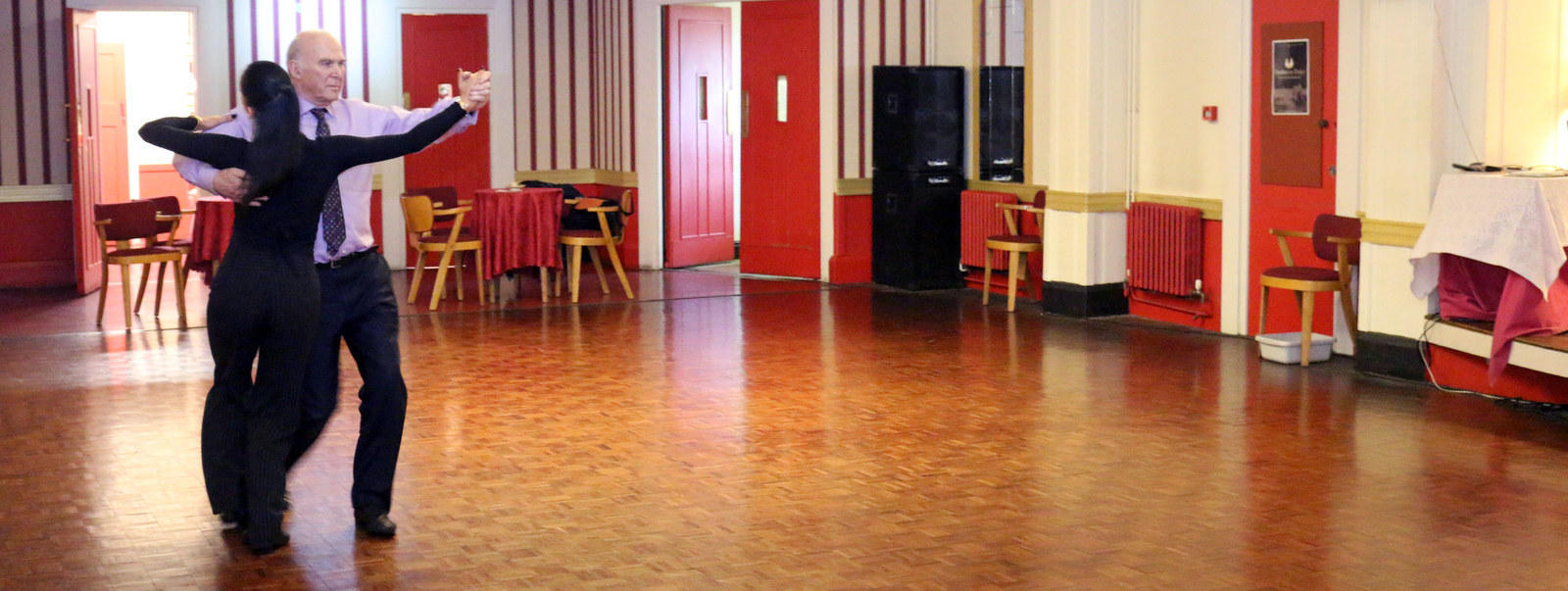
The current favourite to replace Nick Clegg is the outspoken left-leaning backbencher Tim Farron, who caused chaos at the party’s spring conference earlier this month when he said the leadership deserved just two out of 10 for its handling of the coalition.
“It wasn’t at all helpful,” Cable says bluntly. “I mean, he’s a very good campaigning MP, but he’s never been in government and has never had to make difficult decisions and I think his credibility isn’t great. You know, he’s an entertaining speaker and has a bit of a fanclub. But I suspect he would not be seen as a very credible leader, at least now. Maybe in five, 10 years’ time, things are different."
Credible politicians must be more consensual than extreme if they want to get things done, Cable suggests. “The closer we get to an election and the more uncertain it seems," he says pointedly, "the more people will want people who are seen to be competent and reliable."
The Lib Dems’ message to voters is that they would temper the excesses of the Conservatives, who would cut too much, or Labour, who would borrow too much. But is that enough of a draw for voters who know the Lib Dems will never get to govern alone? “I think people will respond to the message that there is merit in being moderate and middle-of-the-road,” Cable insists. “Particularly when you have parties being pulled to the extremes."
He warns that the "Tory right" is forcing David Cameron into extreme positions on the EU, immigration and public spending, while Labour is "getting back to policy messages they last had in the '50s and '60s”. “So I think people will be attracted to people who are rooted in a centre ground,” he says.
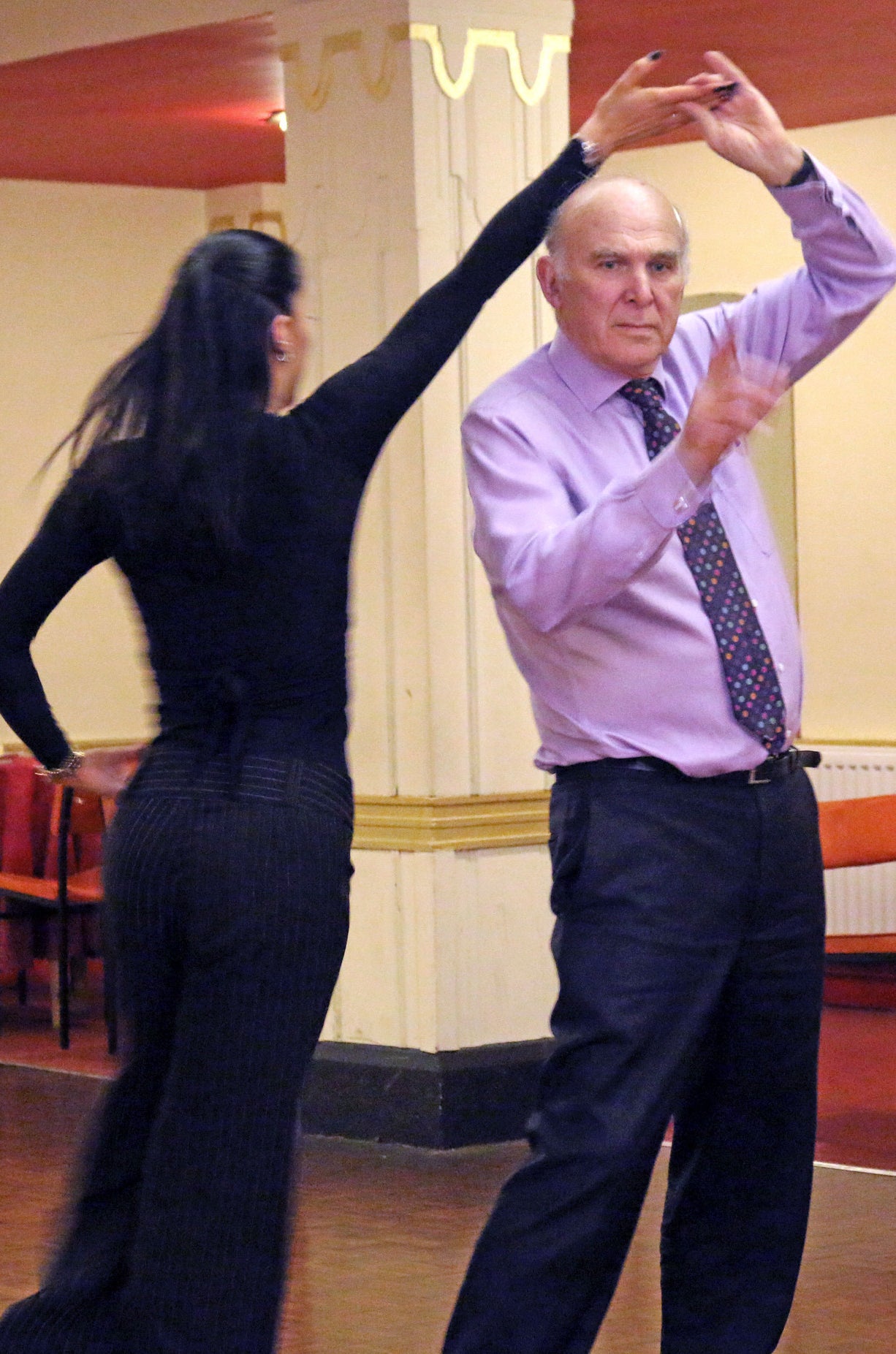
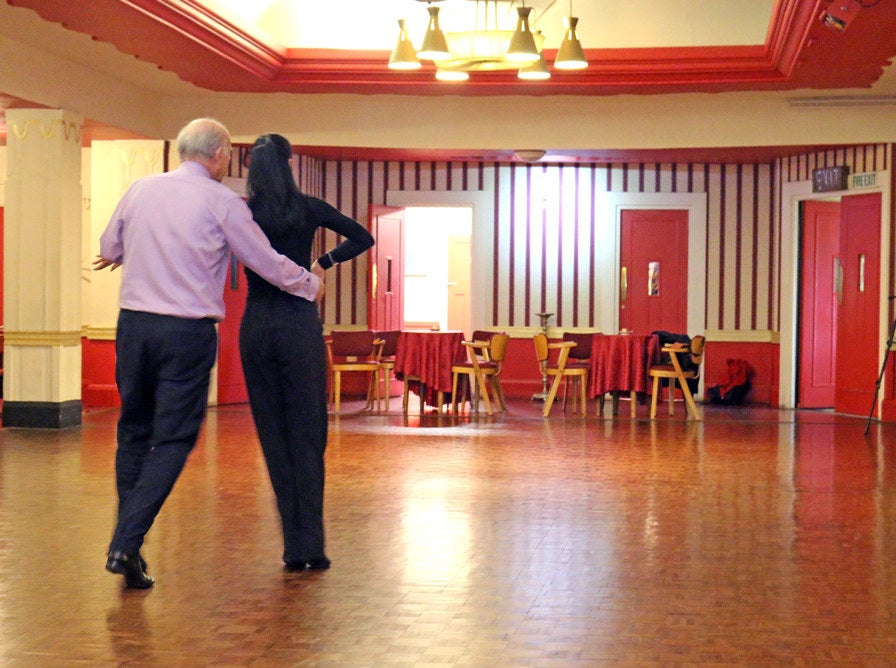
He insists the Lib Dems will “confound expectations” on election day, despite poll ratings hovering at around 7%. “I think what everyone’s now accepting is that national poll ratings are absolutely and utterly meaningless,” he says. "The Scottish nationalists have 2% or 3% of the national poll but will win quite a lot of seats probably. Similarly we have concentrated support – we’re defending 57 [seats] and there's half a dozen others where we have a genuine prospect of winning."
Cable says that on principle, the Lib Dems will work with either the Tories or Labour in a coalition. He says Labour was “wise" to rule out a formal coalition with the SNP: “I think they had to say that.” But Ed Miliband’s pledge to cut tuition fees to £6,000 a year could be a sticking point. Cable controversially introduced fees of up to £9,000 a year as business secretary, breaking a pre-election vow by the Lib Dems to oppose any rise. He now thinks that reducing the fees would be devastating for both universities and the national budget.
Pressed on whether the Lib Dems would govern with Labour, he says: “In principle we work with either, so it is possible. They've made it difficult with this tuition fees thing which we know the vast majority of people in the leadership of the Labour party absolutely hate because they realise it’s completely incredible. That’s made it more difficult for us but there are things the Tories are doing that are equally unpalatable."
Thoughts of coalition clearly disappear on the dance floor. He's so intent on getting the complicated steps right that he often forgets to smile. But he’s clearly thrilled when a dance goes well and he’s praised by the professionals. His lesson ends with a new routine for the cha-cha-cha, performed to The Mavericks’ "Dance the Night Away". The steps are tricky and he’s silently furious with himself for forgetting parts of it, stopping dead several times so they have to start from the beginning again. “You could have continued!” Kelly says. “Perfectionist as always, Vince."

